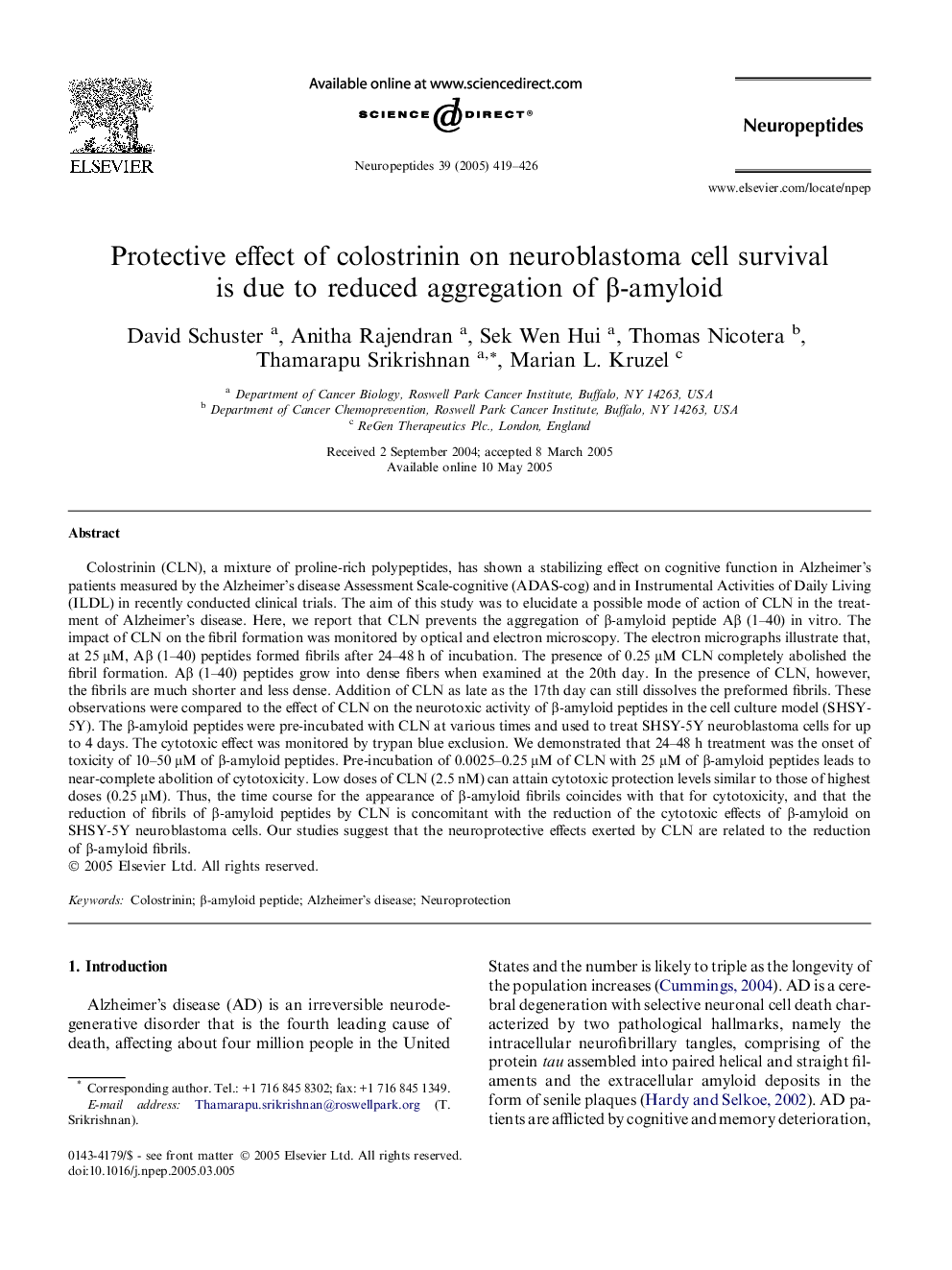| Article ID | Journal | Published Year | Pages | File Type |
|---|---|---|---|---|
| 9118684 | Neuropeptides | 2005 | 8 Pages |
Abstract
Colostrinin (CLN), a mixture of proline-rich polypeptides, has shown a stabilizing effect on cognitive function in Alzheimer's patients measured by the Alzheimer's disease Assessment Scale-cognitive (ADAS-cog) and in Instrumental Activities of Daily Living (ILDL) in recently conducted clinical trials. The aim of this study was to elucidate a possible mode of action of CLN in the treatment of Alzheimer's disease. Here, we report that CLN prevents the aggregation of β-amyloid peptide Aβ (1-40) in vitro. The impact of CLN on the fibril formation was monitored by optical and electron microscopy. The electron micrographs illustrate that, at 25 μM, Aβ (1-40) peptides formed fibrils after 24-48 h of incubation. The presence of 0.25 μM CLN completely abolished the fibril formation. Aβ (1-40) peptides grow into dense fibers when examined at the 20th day. In the presence of CLN, however, the fibrils are much shorter and less dense. Addition of CLN as late as the 17th day can still dissolves the preformed fibrils. These observations were compared to the effect of CLN on the neurotoxic activity of β-amyloid peptides in the cell culture model (SHSY-5Y). The β-amyloid peptides were pre-incubated with CLN at various times and used to treat SHSY-5Y neuroblastoma cells for up to 4 days. The cytotoxic effect was monitored by trypan blue exclusion. We demonstrated that 24-48 h treatment was the onset of toxicity of 10-50 μM of β-amyloid peptides. Pre-incubation of 0.0025-0.25 μM of CLN with 25 μM of β-amyloid peptides leads to near-complete abolition of cytotoxicity. Low doses of CLN (2.5 nM) can attain cytotoxic protection levels similar to those of highest doses (0.25 μM). Thus, the time course for the appearance of β-amyloid fibrils coincides with that for cytotoxicity, and that the reduction of fibrils of β-amyloid peptides by CLN is concomitant with the reduction of the cytotoxic effects of β-amyloid on SHSY-5Y neuroblastoma cells. Our studies suggest that the neuroprotective effects exerted by CLN are related to the reduction of β-amyloid fibrils.
Related Topics
Life Sciences
Biochemistry, Genetics and Molecular Biology
Endocrinology
Authors
David Schuster, Anitha Rajendran, Sek Wen Hui, Thomas Nicotera, Thamarapu Srikrishnan, Marian L. Kruzel,
